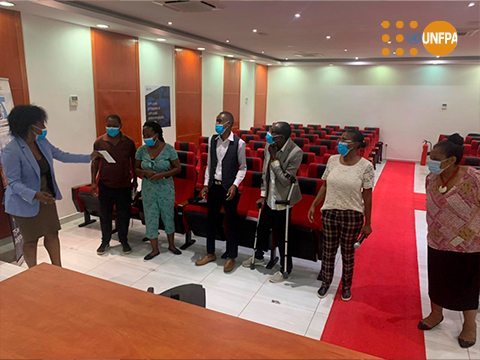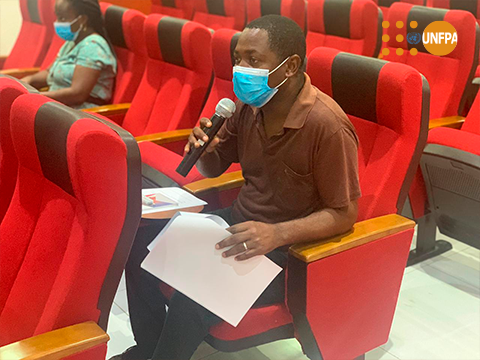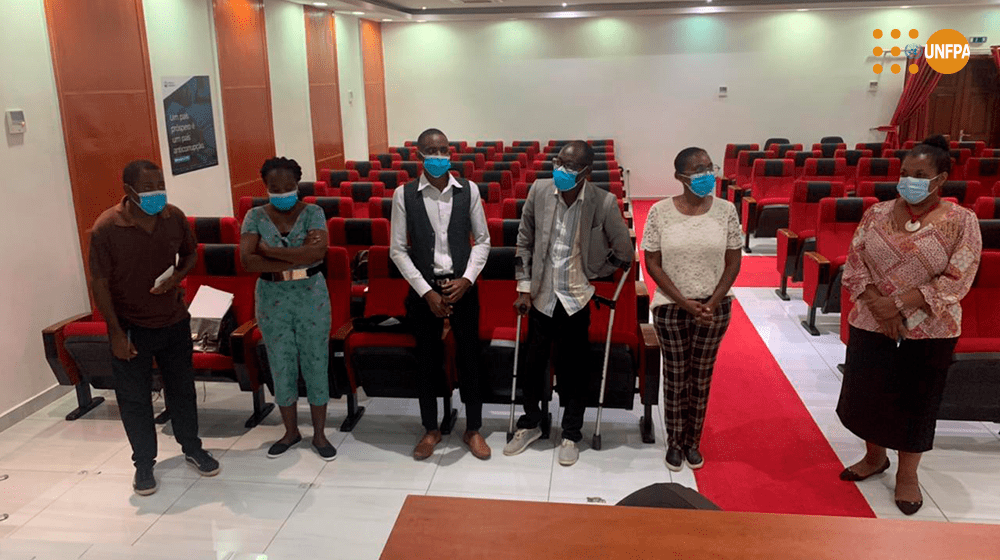Training for journalists on "Communication for Emergencies
During conflicts, natural disasters, and public health emergencies, sexual and reproductive health needs are often neglected with surprising consequences.
Pregnant women are at risk of fatal complications without access to delivery services and emergency obstetric care. Women and girls may lose access to family planning services, exposing them to unplanned pregnancy and in dangerous conditions become more vulnerable to sexual violence, sexual exploitation and HIV infection.

The press and media play a key role in monitoring the situation of the most vulnerable people, especially women and girls. To strengthen the capacity of the Angolan national media during emergencies, and advocate for the press to monitor emergencies with a gender lens UNFPA held the first Training Workshop for Journalists on February 23 under the theme, "Communication for Emergencies."

The training focused on very essential points: communication during an emergency, Angola and the International Conference on Population and Development, and the Nairobi Commitments made by the Government of Angola. During the training, there was the participation of Marina Coelho, Assistant Representative of UNFPA and, as trainer, Ikena Carreira, CommunicationPartnerships and Resource Mobilization Analyst of UNFPA Agola.



